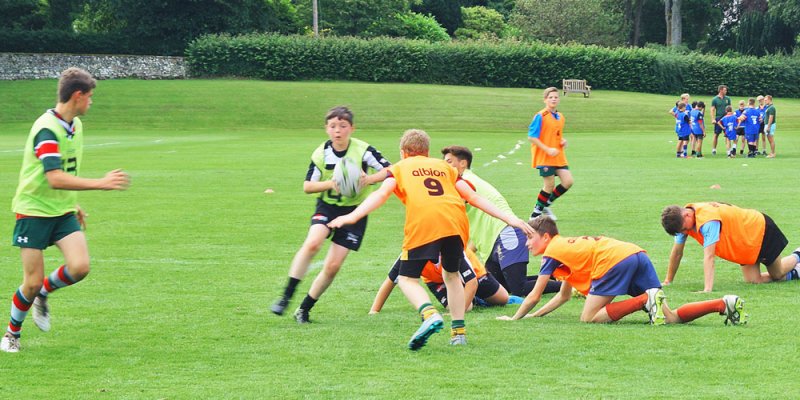Purpose
The purpose of the survey was to track levels of contact Rugby participation in independent school, and the rate of attrition in each year group. The aspiration was to provide schools with a benchmark for the retention level of their programmes.
Results
Percentage of boys in each year group playing contact Rugby Football
| Year Group | Day Schools | Day/Boarding* | Boarding |
|---|---|---|---|
| 7 | 94 | 80 | |
| 8 | 82 | 72 | |
| 9 | 46 | 64 | 94 |
| 10 | 38 | 55 | 90 |
| 11 | 31 | 48 | 73 |
| 12 | 28 | 35 | 55 |
| 13 | 27 | 34 | 50 |
*Defined as a school with at least 25% pupils boarding, and at least 25% day
Commentary
In most independent schools, the proportion of pupils taking part in contact Rugby declines significantly in teenage years. The game is played by an overwhelming majority of pupils in their first two years in each school, though a minority by the Sixth Form. Except in the full boarding sector, the game is not a majority activity in Year 11 or Sixth Form. This probably reflects increasing freedom of choice, and range of alternative activities. In some day schools, the Sixth Form alternative to being involved in Rugby (or sport generally) is to engage in private study, community service or to go home. All participating schools had weekend fixtures.
Conclusion
Retention of pupils through the school is the biggest issue facing the game in schools. Its historic status as a majority activity is no longer the case for senior pupils. Schools will be under pressure to maintain the primacy of the game in the programme in the face of increasing negative pressure. They will also need to find alternative activities, the attractiveness of which may further undermine the position of Rugby. Smaller schools will struggle to continue to achieve the critical mass of pupils necessary to maintain their traditional programme of competition.

















